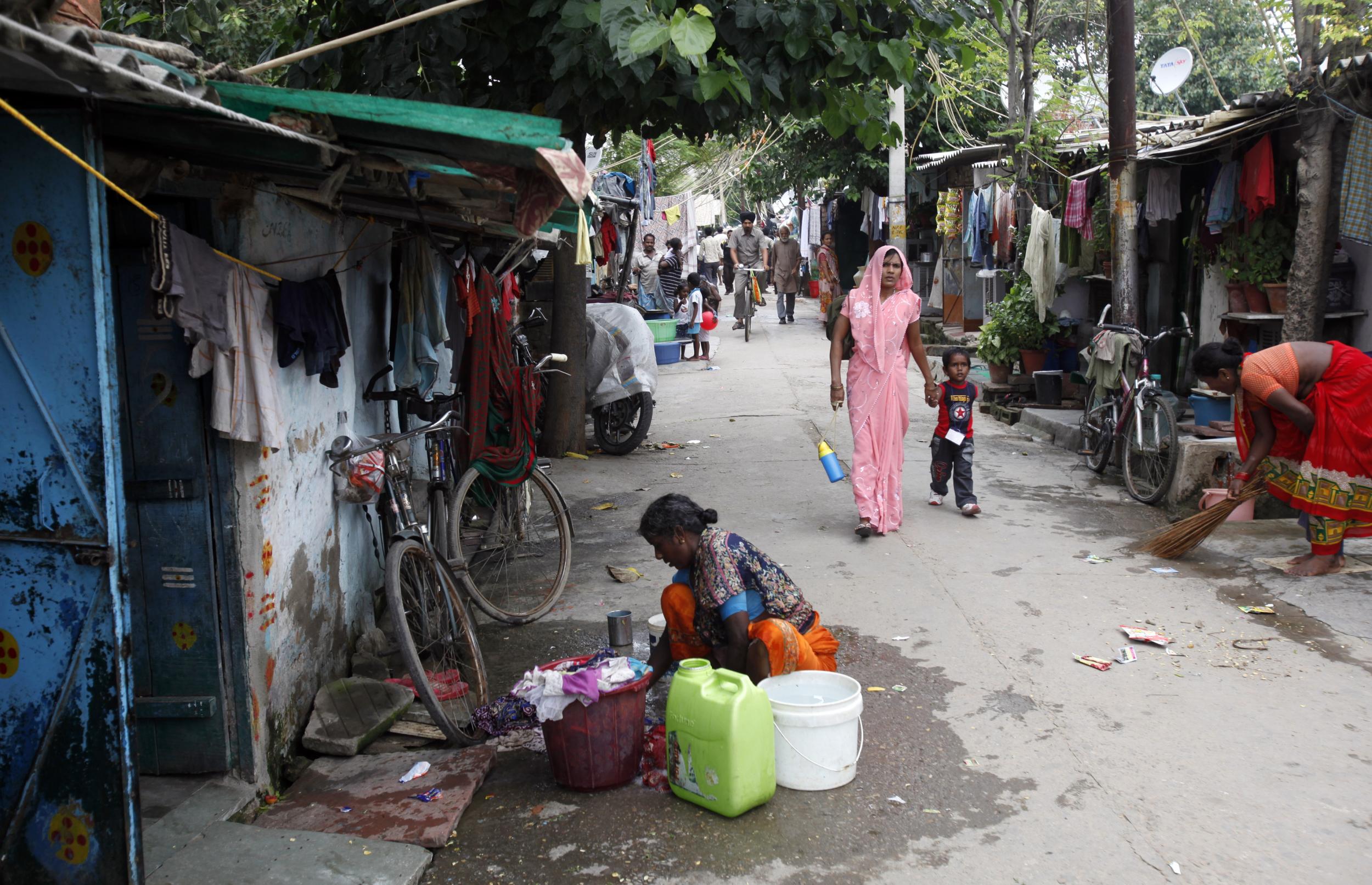The impact of coronavirus on global poverty might be permanent if rich countries don't act now
We estimate the cost of ending both pre-crisis extreme poverty plus the new extreme poverty as a result of the crisis would be just 0.63 per cent of the combined G7’s GDP. Andy Sumner writes

Covid-19 is now spreading rapidly in developing countries. Three quarters of new cases detected every day are in the global South. And it is fast becoming an economic crisis, as well as a public health one.
Already the IMF’s growth forecasts released in mid-April look very dated. The World Bank’s new growth estimates are worse and the Asian Development Bank, the OECD and Goldman Sachs point towards much bigger economic shock. Ricardo Hausmann of Harvard estimates put it starkly: that developing countries’ economies will shrink by 20 to 40 per cent in the second quarter of 2020 and see double-digit contractions for the year as a whole.
That economic crisis will likely to lead to an immediate and substantial poverty impact. The effect might be permanent, depending on what national governments are able to do quickly. Without action, we could see a rollback of progress on reducing global poverty by 20 or even 30 years and make achieving the United Nations first Sustainable Development Goal, of ending extreme poverty by 2030, a pipe dream.
By our estimates extreme poverty could rise to over 1bn people globally as a result of the economic consequences of coronavirus. Up to 400m people could join those already under the extreme poverty line of $1.90 per day, while the jump in the number of people falling under the higher World Bank poverty lines of $3.20 and $5.50 could rise by half a billion people.
The intensity and severity of poverty are expected to be exacerbated too, and there is likely to be a significant shift in the global distribution of poverty. The impact could be particularly dramatic in middle-income developing countries where millions of people live just above the poverty line, especially so in Asia. In fact, in middle-income developing countries, extreme poverty could almost double.
These kinds of outcomes expose the extent of precarity in developing countries but also the fragility of progress made against poverty to any economic shock, whether it is the current crisis or the next wave of the pandemic.
What can the world’s richest countries do to avoid this catastrophic backslide? The G20 has already suspended service payments on bilateral debt to 73 developing countries from May to the end of 2020. However, countries need to opt-in and many aren’t as the G20’s deal leaves countries not taking relief due to the worry it will stigmatise them and lead to downgrading by credit agencies.
More debt payment suspensions, debt restructuring or even cancellation may become inevitable as developing countries are losing export income, remittances and capital inflows at the same time as paying over one trillion dollars a year on external debt repayments.
Meanwhile the G7 were to meet in June, though that is now postponed until September or possibly later.
So while governments in developing countries have started to try to address the poverty impacts of Covid-19 through increasing the size and coverage of social protection payments, this reflects a tiny fraction of what G7 countries have spent.
The world’s richest countries have collectively spent trillions of dollars stimulating their economies. So far, Germany and France have spent 9-11 per cent of GDP. The US has spent 13 per cent, and Japan 21 per cent of GDP since the crisis started. In contrast, we estimate the cost of ending both pre-crisis extreme poverty plus the new extreme poverty as a result of the crisis would be just 0.63 per cent of the combined G7’s GDP.
In short, more action is needed and soon. Waiting until a G7 meeting in September or a G20 in November will be too late. To mitigate the tragic consequences of Covid-19 on global poverty, three actions need to be prioritised by global leaders as soon as possible.
First, a rapid response global commission on poverty and Covid-19 chaired or co-chaired by a G7 leader, a G20 leader and a G77 leader to discuss the poverty impacts and what financing is needed for a global safety net or global solidarity fund, as well as what developing countries can afford and what rich countries can do to help.
Second, funds should be released quickly by halting the IMF debt service payments by all developing countries and freezing World Bank debt service payments at least until the end of 2020, possibly into 2021. These moves would need to be automatic rather than opt-in to avoid the G20 stigma problem. Once the crisis eases, debt restructuring or outright cancellation for some developing countries will be needed or even unavoidable.
Third, we need to see a swift allocation of those newly available funds into countries’ own cash transfer and other social safety programmes that already exist in most developing countries. Additionally, the scope of programmes need to be extended beyond the poorest people to include those living in precarious conditions. Many programmes are already being redirected and expanded but more funding and coverage is needed – and quickly.
If this three-point plan happens, the poverty impacts of the crisis could be minimised. Potentially these actions could even speed up the eventual end of global poverty.
Rich countries could do a lot right now using their power at the IMF and World Bank boards to put this plan into place, to address global poverty, or, at the very least, get the trend on track to end poverty by 2030.
Andy Sumner is professor of international development at King’s College London and a non-resident senior fellow of UNU-Wider, Helsinki
Join our commenting forum
Join thought-provoking conversations, follow other Independent readers and see their replies
Comments
Bookmark popover
Removed from bookmarks